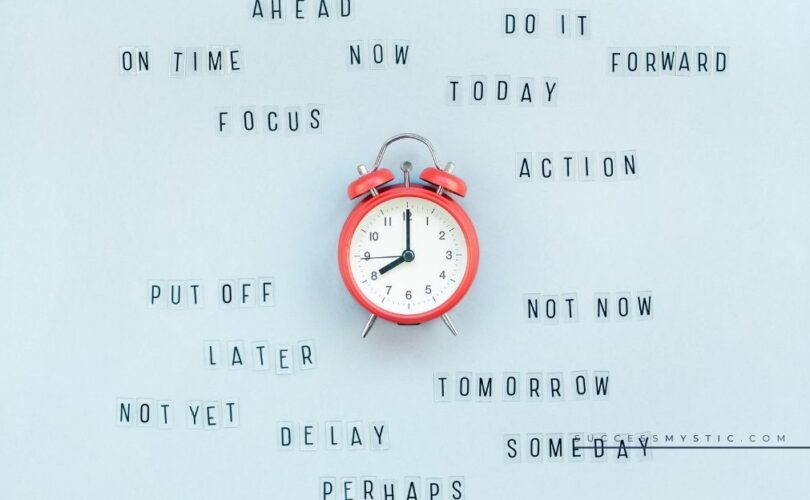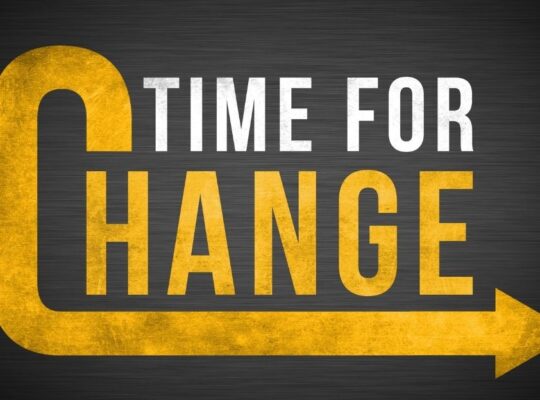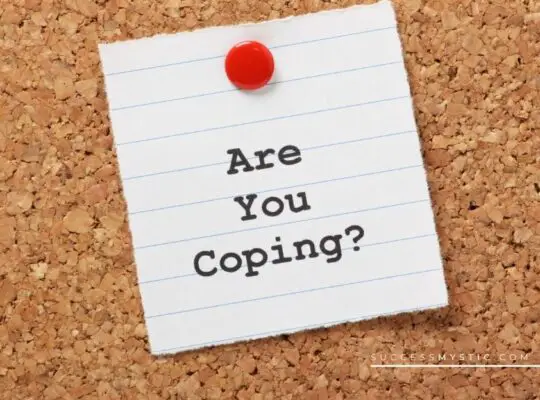Understanding the Basics of Time Management
Do you ever feel like there is never enough time in your life for you? To do the things that you want to do? To play and enjoy your life? Well, it may not be there is not enough time but that you are not using the time you have to your best advantage.
Managing your time more effectively can help you gain more room in your life for the things that matter most to you and give you the extra hours to work less and play more.
So, you want to learn to manage your time better, huh? What does time management mean to you? For productivity and efficiency experts, time management is planning and using your conscious control over how you spend your time on specific tasks.
Time management, as they say, allows you to work smarter, not harder, getting more done in less time than those without these skills. Because learning to use your time wisely is situational, it is a collection of skills that you apply to each situation and adapt to the current circumstances.
When you lack the ability to manage your time well, you may experience one or more negative outcomes in your life. For example, those who lack time management are more likely to run late for appointments or commitments, to miss deadlines, or to have less focus or ability to concentrate.
When you do not use your time well, you may be overlooked for opportunities at work, your relationships at home or the office may suffer, and you may even incur financial difficulties. Not using your time well increases your stress levels, too, which can ultimately harm your physical and mental well-being.
Time is finite, and once it has passed, you cannot get it back. It is, perhaps, the most valuable asset you have. Learning to use your time effectively can provide your life with immense benefits, which we explore next.
5 Key Benefits of Effective Time Management
In all aspects of your life, learning time management, and using these skills adeptly can have enormous benefits. The following are the most profound and often experienced benefits of managing your time more effectively.
1| You Will Experience More Success at Work
When you use your time more effectively, you can better manage your workload, accomplish necessary tasks on time, and produce better results. All of these will increase your success and productivity at work, which will not go unnoticed by your supervisors and colleagues.
When you contribute to the team and pull your weight while also delivery results on time, you are more likely to accomplish your goals and be recognized by others for your ability to perform.
2| You Will Have Less Stress and Worry in Your Life
When you effectively use your time, you have more of it to do the things that are important and necessary for you. You will feel more confident in yourself and have less stress when you learn how to balance your time and dedicate it to what matters most. Lower stress means improved mental and physical health, too.
3| You Will Have More Time for Fun and Enjoyment
The goal of time management is to use the limited time you do have more efficiently so that you have more opportunities for fun, leisure, and other activities that you enjoy.
When you use your time for work, chores, and responsibilities efficiently, then you can get more from the time you have left to spend with those you love, engage in self-care, participate in hobbies, and whatever else you want to do. And when you learn time management skills, you also learn how to make the most of every moment of your personal time, too.
4| You Will Be Able to Accomplish Your Goals
Managing your time more effectively give you more opportunities to accomplish your goals, work proactively to ensure they are realized, and to spend dedicated time on the most important tasks related to your objectives.
Being able to set aside a specific time to work on your dreams is necessary for achieving them, and time management can help you do just that.
5| You Will Have Stronger, Healthier Relationships
When you use your time well, follow through on your commitments, and are a reliable partner, people trust you more and feel more confident in your commitment to them. When your coworkers see that you make good use of your time, you become a trusted group member and partner.
When your family understands that you can meet obligations and show up when you are needed, they will feel closer and surer of your ongoing dedication to your relationship.
20 Ways to Manage Your Time More Effectively
Now that you understand what time management it and why it is crucial, it is time to start learning how to develop these necessary skills. Below are our 20 favorite time management strategies that you can use to get more out of life, to work less, and to enjoy life more.
1| Start Every Day with a Plan
If you examine all the time management strategies out there, planning is by far the most effective and proven of these tactics. When you have a plan, you know what you need to do, how much needs to be done, what commitments and obligations are on your to-do list and everything that is important about your day. Before going to bed each night, spend just a few minutes planning for the following day.
Your plan should include:
- A to-do list that contains your most important tasks and responsivities listed first
- An updated calendar that includes all your known appointments, meetings, etc.
- A list of all the resources, materials, or other items you need to have a successful day
When you take the time to make these plans before going to bed, you can feel more relaxed knowing what is ahead and what you need to accomplish your goals the next day. When you wake, you have a blueprint to guide your day that will help you make the most of your time. When you have a plan already, it makes procrastination much more difficult, too.
2| Prioritize Your Goals
Goals are what guide your actions. Without them, you may waste time on unneeded activities or unnecessary efforts. And not all goals are important every day or every hour. When you are creating your daily objectives, you need to prioritize, which are the most important for you to accomplish that day. In addition to what is important, you also need to focus on how urgent each task is. While it is essential, for example, that you get plenty of exercise each day, this task may be less urgent on some days, meaning it can wait until later in the day to be accomplished. Rank your goals according to their importance and urgency each day.
Always do the most important and urgent things first. After these tasks are accomplished, you will feel much less stressed knowing you have already met your primary targets for the day. Some jobs require more considerable time and energy, which is why it is best to do them first thing, when you are mentally and physically more energized, too.
3| Find Your Most Productive Time
We all have different patterns of energy. During the day, your level of focus and concentration waxes and wanes. It likely follows some very predictable patterns. During your peak energy hours, you are most productive, and this is when you should be scheduling important or complex tasks.
When you are tired or have less mental energy, you should be using this time for less critical, more mundane tasks. Learning about own personal energy levels and productive times during the day and week can help you learn to schedule tasks when it is best for you.
For example, if you know you hit a slump in concentration between 2-3 each day, this is a great time to organize your desk, clear out your inbox, respond to voice mails, update budgets or reports, or do other, more mechanical or routine tasks.
Most people are also not very energetic by Friday afternoon, so do not schedule important meetings or time to work on big projects at the end of the week, when you are already drained and ready for the weekend. Learn to work with your energy instead of against it for the best use of your time.
4| Actively Work to Eliminate Distractions
Distractions are perhaps one of the most significant dangers to your productivity and time management. Every time your attention is pulled away by something or someone, it can take up to two times as long as the distraction to get your focus back on the task at hand. That means, for every three-second glance at an email notification or pop-up message on your phone, it takes six seconds to get back to where you were before the interruption. Getting rid of distractions is an essential and necessary time management tool.
Turn off all the notifications that you possibly can. This includes phone, email, social media, and instant messages. Eliminate as many other distractions as you can from your environment. This includes blocking out noise or movement that pulls your attention away. If you have a door, close it. If you do not, wear noise-canceling headphones. Keep your phone hidden so you are not tempted to look at it.
If you are doing something that does not require access, turn off your Wi-Fi connection. Use Do Not Disturb functions on instant message apps, internal chat systems, and even on your office or cubicle door. Do whatever you can to eliminate all the noises, sights, and other distractions that pull you away from your work.
5| Organize Your Environment
To make the best use of your time, you need to be able to find what you need and know where to put things when you are done using them. Getting rid of clutter and organizing your space can help you eliminate wasted time searching and can improve your workflow. Organization includes getting rid of digital clutter, organizing electronic files, and using tools to keep your digital workspace organized, too.
6| Focus on One Thing at a Time
Somewhere along the way, we were told that multitasking was a good thing, as we believed it. Guess what? When it comes to productivity and time management, single tasking is the best way to go!
When you focus on more than one thing at a time, your brain does an inferior job of attending to either of those things. Juggling tasks divides your focus, causes you to lose productivity every time you switch from one thing to the next and can lead to higher levels of stress.
It is better to spend an extended period on one task and then move on to something else versus switching back and forth between jobs. Doing this slows down your cognitive processing and makes it harder to filter out relevant information. The more you can concentrate on one thing at a time, the faster and better you will get the job done.
7| Delegate or Outsource What You Can
Not everything has to be done by you. There are many tasks in your life that may be important but do not necessarily require YOUR attention and focus. They can easily be done by someone else. Learning to delegate certain chores, jobs, or responsibilities to others is an important skill for learning to use your time more wisely.
When delegating, you want to ensure that the person to whom you are giving the job has all the necessary skills to complete it. They need to be capable of being successful at the task. Be sure to thoroughly explain what you need to be done in detail, and also clarify what the expected outcome is. If there is a deadline, they need to know that. Be sure to ask if they understand and to provide clarification if you see there is a misunderstanding.
8| Use Waiting Time and Other Gap Opportunities Whenever Possible
Throughout your day, you have lots of small pockets of time that are often underutilized. Waiting in line, on your daily commute, waiting for a meeting to start, and time before appointments are all opportunities to get things accomplished. You can learn to strategically plan for and use this time to your advantage.
You can use this time to read articles or blogs that you have saved but have not had time to read. You can listen to podcasts or watch videos related to your personal or professional goals.
You can respond to emails, organize your inbox, or comb through your digital files. You can take a short break to clear your mind, meditate, or refocus. You can clear out your purse, backpack, or desk. All of these are necessary tasks that are ideally suited to gaps in your daily routine. And when you attend to them during these small intervals of found time, you can devote more of your free time to things you really enjoy.
9| End Procrastination with the 2-Minute Rule
One time management expert recommends using the 2-minute rule to help you banish procrastination from your life. If something can be done in two minutes or less, you should go ahead and do it right then. Do not put it off or add it to your list for later. Just do it right now and get it done. These types of trivial tasks are mundane and often dull, but they are easy to do and get off your worry list.
If something is going to take longer than two minutes, start it and work on it for five. At that time, you can evaluate whether you want to keep going or if you should return to it later.
Often, just getting started on something is enough to get over the procrastination hump and get you motivated to do it. And larger tasks that take a long time can often be accomplished in smaller, 5-minute chunks throughout the day.
10| Automate Your Daily Operations
With all the apps, plug-ins, and tools available today, it is easier than ever before to automate some of the daily and repetitive tasks of your life. Look for things that you often do or do in the same way every time.
Find ways to using electronic tools to schedule things you often do, to send you reminders automatically, to send emails or compose responses you post often, or to perform tasks you do regularly. Create templates for forms, letters, spreadsheets, and other documents you typically use, as well.
Speaking of tools, there are so many great ones available today that can help you with your time management skills. From time tracking software to electronic to-do lists, there are many from which to choose.
Look for those that help you build skills in areas you lack. For example, project management software can help you break down larger goals into smaller tasks. Habit tracking software can help you practice new skills each day. Use the tools that are out there to your advantage to help you manage your time more efficiently.
11| Group Like Tasks Together
One simple but effective strategy to get the most bang for your buck when it comes to time is to group similar tasks together and do them all at once. This strategy is sometimes called batching and allows you to devote one session per day or week to a particular activity, thus making the rest of your time more open for other opportunities.
Examples of things you can group include:
- Cooking all your meals for the week on one day
- Running all your errands for the week or month at once
- Sending and responding to all emails and phone calls once per day
- Planning for a large project in one sitting
- Processing all regular reports and updates all at once
This type of grouping eliminates distractions during the rest of your day or week, allows you to maintain focus on more critical tasks, and gets the mental and physical clutter off your to-do list all at once.
12| Motivate Yourself with Rewards
Staying focused and finishing an important task can be challenging, especially when you are first developing your time management skills. If you want to stay motivated, you need to build in rewards for yourself when you stay on task for a specific period, or you finish a project. Determine your goal, and once you have completed it, reward yourself with some downtime or a favorite activity.
Taking short breaks is an excellent reward after sustain attention. You can also reward yourself with a walk, a few minutes on social media, time to call or text with a friend, or something else you enjoy. Rewards help you stay focused and give you satisfaction for completing your goals.
13| Learn How to Deal with Emails
It is a reality of today’s workplace that email has come to occupy a sizable portion of most people’s time. In fact, the average person spends anywhere between 17-30 hours per week processing emails!! But the sad reality is that at least one-third of those messages (possibly more, depending on your workplace) are not important or urgent. Adopting some strategies for limiting your time on email can help you gain back valuable work time and productivity.
First, limit how many times per day you check your email. Start by checking first thing in the morning. Respond only to those that are most urgent or important. Leave the rest for when you have gaps in your day. Find a second time later in the day to do the same for messages that filter in throughout the workday.
This could be just before you go home, after lunch, or some other time that works best in your schedule. Limit your email checking and responding to these times. Create form messages that you can copy and paste that include your most common responses. Place messages in spam that you do not want to clog your inbox in the future.
14| Take Care of Yourself
Managing your time better should always include finding time to take care of yourself and look after your health and well-being. That means ensuring that you are getting enough sleep, that you are making time for the healthy food and exercise you need, and that you are devoting enough time each day to your priorities, too. Be sure to put yourself and your goals in your to-do list and calendar each day.
15| Create Routines
Routines are a fantastic way to ensure that the things you do every day get done. A morning routine can help you get your day started positively, make sure you have everything you need for the day, and that you are prepared to meet your goals.
An evening or after-work routine means you will be taking care of yourself and spending time doing what you love. Habits become automatic and simplify your life, and they reduce your stress when you know that you will have time for the things that are important to you. Develop some routines that help you stay on the right track to accomplish your goals.
16| Track Your Times
Learning to manage your time better can be much easier when you know how you are spending your hours each day. Using a time tracking app on your phone or computer can help you know exactly where your time goes and how much time you have to devote each day to specific goals and tasks.
Once you have a few weeks’ worth of data, you can look for patterns and themes that give you insight into where you are wasting time, what distractions are killing your productivity, and how you are using your time wisely in some areas.
Data like this helps you figure out the best way to solve problems, automate tasks, and look for other time-saving strategies.
17| Learn How to Say “No”
Many times, the reason you feel overwhelmed and overworked is that you are trying to do too much in your limited time. One crucial strategy for effective time management is learning when to say “yes” and when to say “no.”
When you take on tasks that you do not actually have time for, you are going to suffer in all areas of your life. Your time is limited, and you can’t make more of it, so knowing what you are capable of doing and what you can’t take on is an important skill.
Focus on doing what you can and doing it really well. Quality is more important than quantity.
Those who are most successful are those that say “no” a lot more than they say “yes,” because they know they can only give so much of themselves and their time. Only accept those responsibilities and tasks that contribute to your topmost vital objectives. Everything else is just clutter you do not need in your life.
18| Take Breaks Regularly
While it may sound counterintuitive, taking breaks is actually an especially important part of productivity and time management. Using time well is not just about always being on tasks. In fact, the longer you sustain focus, the less productive you are likely becoming over time.
Taking short, concentrated breaks can help you stay fresh and focus on the task you are trying to complete. Breaks allow you to calm your mind, clear the way for new ideas, and re-energize your body and spirit. Breaks improve productivity when they are taken strategically and appropriately.
19| Learn to Make Quick Choices for Unimportant Decisions
While you may make thousands of decisions every day, most of them will matter very little in the long run. Learning to identify and concentrate on those that matter most and develop most of your energy to these is crucial for effective time management.
Those decisions that have small to moderate consequences should occupy extraordinarily little of your energy or time, but those that have significant effects are worth the time to deliberate them. Consider how vital something will be in 10 minutes, 10 months, or 10 years.
Those that do not matter much should be decided quickly and, when possible, automatically, which leaves you room to contemplate those that actually matter.
20| Learn How to Break Down Large Goals and Tasks
Task analysis is a fancy term that means identifying all the small steps that need to be taken to get to the result. Often, when a goal is huge, we become paralyzed into inaction because it seems too daunting to even start. Instead of focusing on the finish line, good time managers know that you can only focus on what you can do today.
Task analysis will help you work backward from an objective to identify the smaller goals and milestones that you can work toward every day to reach that finish line in the future.
Identifying small, manageable goals for every week of a project will give you more realistic targets to work toward. These weekly goals can then become smaller daily objectives which can be added to your to-do list.
The smallest tasks should take no more than an hour to complete, so if it is more complicated than that, break it down even further. This type of task analysis will help you avoid procrastination, stay motivated, and actually accomplish your goal.
Final Thoughts
Taking the time needed to develop time management skills and to manage your time more effectively can help you organize your life, accomplish your goals, be more successful, and have more time for yourself.







